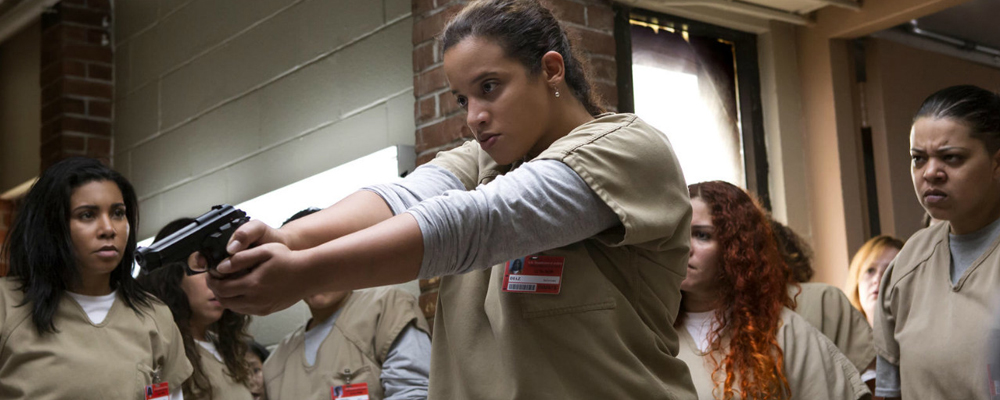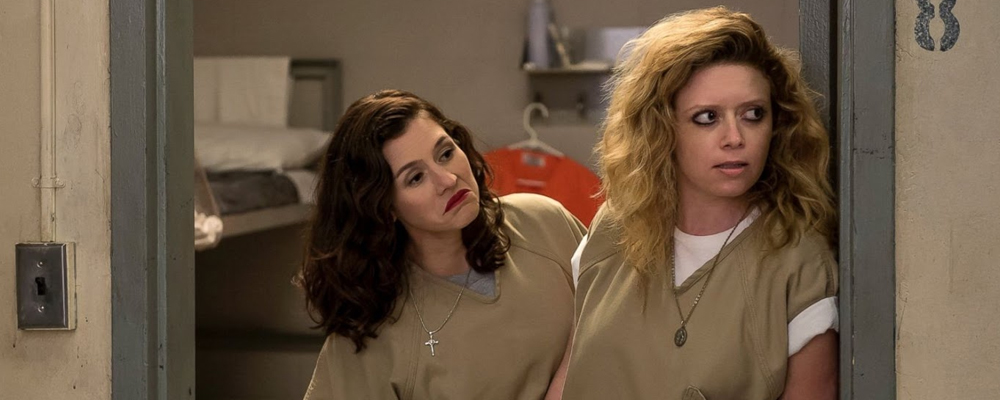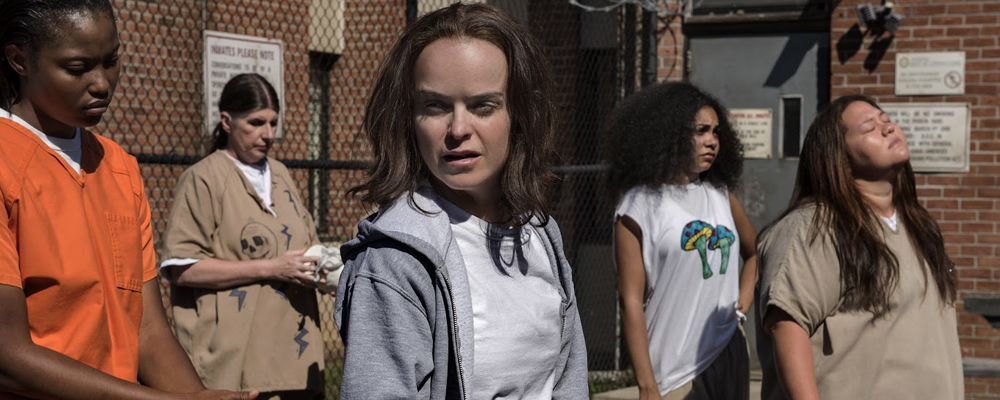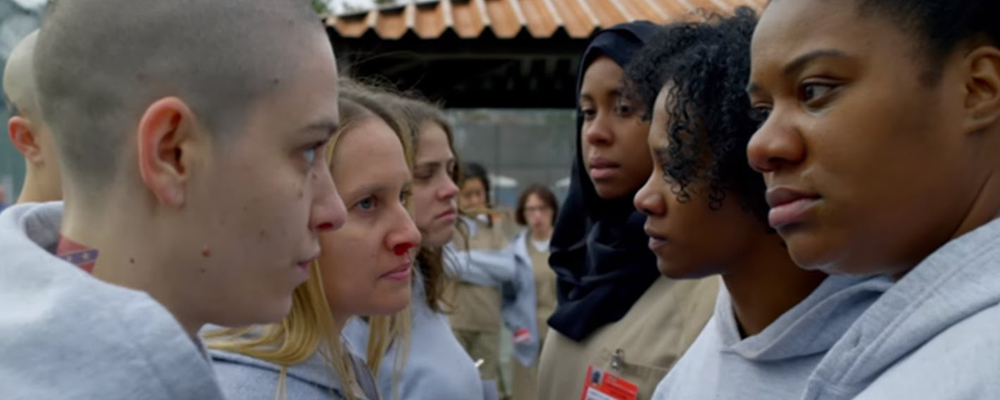‘Orange Is the New Black’ Season 5 Is an All-Out Riot
Alex Aronson
Picking up right where it left off, Netflix’s original hit series, “Orange Is the New Black” opens season five with pure chaos and pandemonium – and doesn’t let up. It was evident that the death of Poussey (Samira Wiley) in the final episode of season four would have a profound effect on the characters in Litchfield. The repercussions from season four’s intense and emotionally charged standoff takes form in an all out prison riot that lasts over the course of three dramatic, chaotic, and, at times, humorous, days. The inmates are in charge this time around, which lends itself nicely for an uncharacteristic narrative this season. With no shots, lights out, or rules and regulations to follow, the characters are left to run amok.
It is clear that at this point in the Jenji Kohan series that this isn’t show just about Piper Chapman’s (Taylor Schilling) story anymore. The central focus has shifted towards those inmates that served as supporting characters in previous seasons – allowing them to take center stage. In a way, that’s what is so refreshing about the series. Everyone gets a chance to shine – and each character receives a fine performance.
One of the most compelling fixtures in the “Orange Is the New Black” narrative is learning the various backstories of those locked within Litchfield’s walls, including the lives of the officers and administrators who visit. In the world of “Orange,” everyone is deserving of a backstory, but this season shakes up that narrative device. Rather than providing backstories that explain why particular inmates got locked up, a majority of the season five flashback sequences provide insight as to specific skills that they gained while in the outside world. In particular, Fried’s (Dale Soules) survivalist background serves as a nice explanation as to how she creates a survival shelter in the prison’s abandoned pool – which later acts as a key locale.
Perhaps one of the most entertaining storylines of the season follows Linda Ferguson (Beth Dover), an M.C.C. employee who, with the help of Alex (Laura Prepon) and Piper, becomes a pseudo-inmate to avoid being taken hostage along with the other correctional officers and staff. It is through Linda’s flashbacks, featuring a cruel and darkly humorous sorority sister mishap, that shows she just wants to fit in. In total irony, she finally has her wish come true – and even delves into a relationship with Boo (Lea DeLaria). The witty writing shines best through this character.
Other flashbacks, including Tasty (Danielle Brooks) reconnecting with her birth mother and Dayanara (Dascha Polanco) getting pushed around by her forceful mother, provide real motivational springboard for the characters.
The media surrounding the Litchfield riots provides the most direct social commentary of the season. Now gaining access to hostage’s cell phones, the prisoners have a deeper connection with the outside world – more so than any other season. As a result, interesting dynamics occur. Outside relationships break, alliances form, and Marisol (Jackie Cruz) and Maritza (Diane Guerrero) even become Youtube beauty vlogging sensations. In the truest form of art imitating life, a police brutality sequence recorded by one of the inmates immediately goes viral and serves as a form of proper justice in its own right.
Over the course of the three-day setting, there are certainly enough characters and storylines to make the 13 sharply crafted episodes feel full. Yes, there is some inevitable filler in the middle of the season – including a mildly entertaining talent show starring the hostage correctional officers – but everything else manages to fit into the season’s narrative as a whole.
Red’s (Kate Mulgrew) season long, vengeful streak against the violent correction officer, Piscatella, takes a shocking turn – as he captures both her and her “daughters,” including Nicky (Natasha Lyonne), Alex, and Piper, in a sequence that redeems the aforementioned character’s relative absence throughout the beginning portion of the season. Consequentially, Alex and Piper’s relationship evolves and everything accumulates to them being united, as their future remains particularly uncertain.
The season ultimately ends on a high note. In one powerful moment Poussey’s lover, Brook (Kimiko Glenn), is being forcefully removed from her former partner’s memorial library. The slow motion sequence evokes numbness, anger, and pain – an emotional embodiment of the entire season. Paired along with the police brutality as depicted in the final episode, it feels unnervingly relevant.
After four seasons, this go around of “Orange Is the New Black” is seemingly different. Switching the balance of power and adding a new heightened level of chaos. The show always balances along the line of comedy and drama, having switched genre categories in previous award ceremonies. But this season feels more drama heavy. It’s a compelling, yet different watch. Season five is fresh, adding a revitalizing shot into the series. “Orange” knows how to pull the viewer in with engaging characters and excellent storytelling. Season five is no short exception.
“Orange is the New Black” season 5 is available on Netflix June 9.




